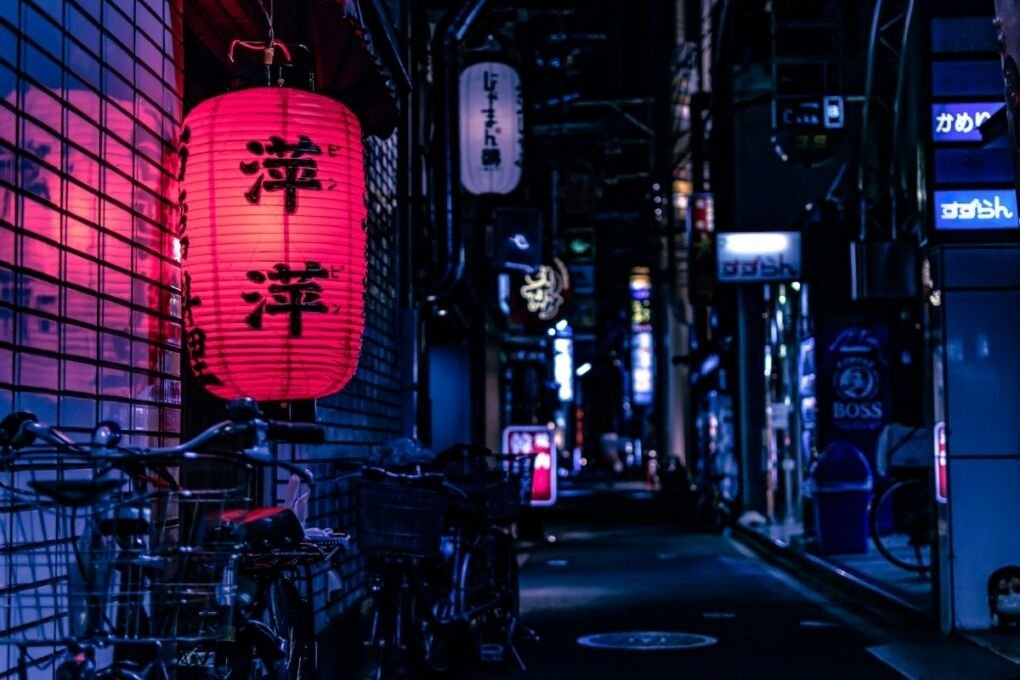Fresh sushi, hearty ramen, and Anime are just a few things Japan is known for. The Land of the Rising Sun is a bucket list destination with delicious food, beautiful sites and rich culture.
Japan has a special way of maintaining its elegant and beautiful history while setting new trends for other countries to follow. You’ll be able to view ancient temples and get lost in the hustle and bustle of Shibuya, all on the same day.
If you’re not sold already, there’s so much more to see in Japan other than your typical attractions. This country is also known for its unusual and quirky sites, and there are some very weird things to do in Japan. With so much going on, you may be wondering, is Japan safe for tourists? Keep reading to find out.
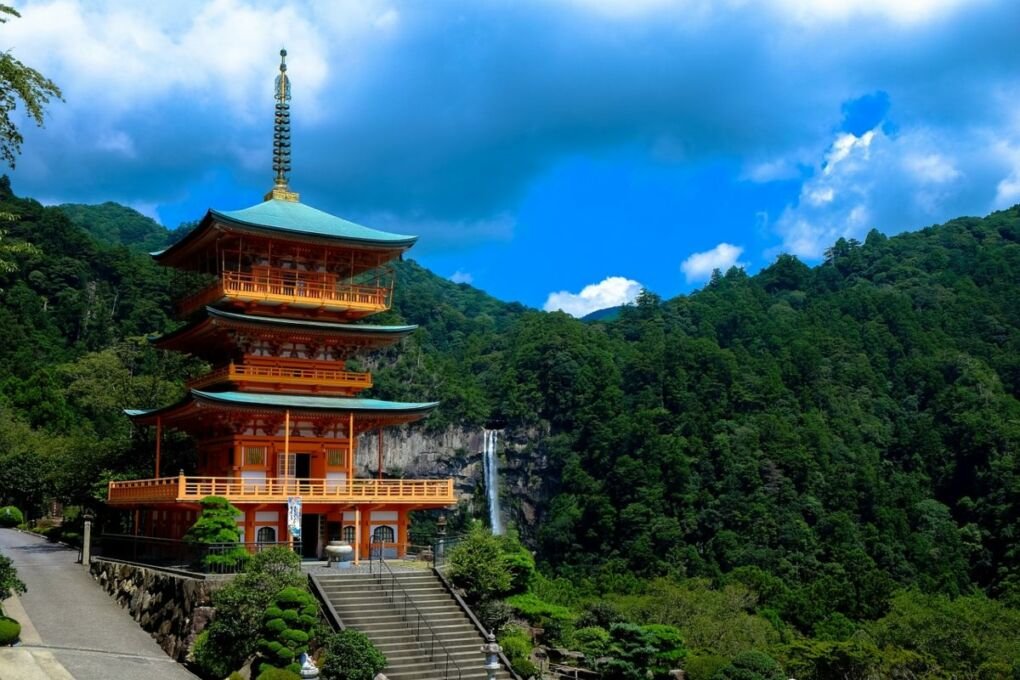
Table of Contents
ToggleWhy Visit Japan
Imagine starting your day by attending a traditional tea ceremony, where you learn about the importance of preparing and not just drinking tea. After all that delicious tea, you might find yourself a bit peckish. No worries, choose a snack from one of the five million vending machines.
You then head off to explore the cities and get lost wandering the streets of Japan. This is an excellent example of how you could spend one of your days in this fantastic country. Imagine hopping on a Shinkansen (bullet train), going at high speeds of over 150 mph (240km/h) and making your way to the iconic Mount Fuji.
Explore the peaceful and serene countryside, and when you’re done, warm up with one of the many traditional dishes, like miso soup, yakitori, unagi, and more. This is only a taste of what you’ll find when visiting Japan.

Is Japan Dangerous
Japan is one of the safest countries in the world. It was rated as the 10th most peaceful country in the world and saw a decline in murder rates from 2020 to 2021. The crime rate is still extremely low and violent crimes are rare.
Petty theft is also uncommon, and many people feel pretty safe walking alone in the day and evening. However, no country is entirely danger-free. There are certain neighborhoods to avoid due to the red-light districts and slums. That said, even the less desirable areas are still visited by many people, including locals.
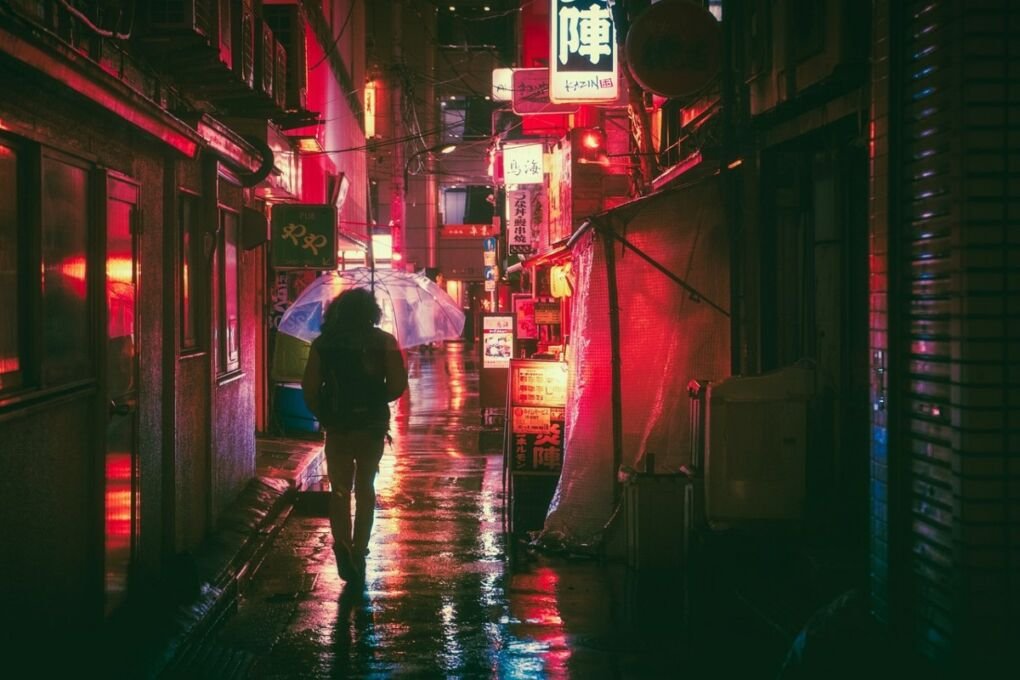
Dangerous Areas in Japan
Kabukicho, Tokyo
Kabukicho is not only Japan’s largest red-light district, it’s also the biggest in the world. It was formed in the late 1940s with plans to build a kabuki theater, which unfortunately never happened, but the name stuck.
This part of Tokyo is known for its restaurants, karaoke bars, and clubs. The neighborhood is safe if you’re visiting a specific spot. The area is known for promoters flagging down tourists to visit their clubs (and end up with a pretty hefty bill at the end of the night) and underworld activity. You’ll also find a lot of police dressed up in riot gear patrolling the streets.
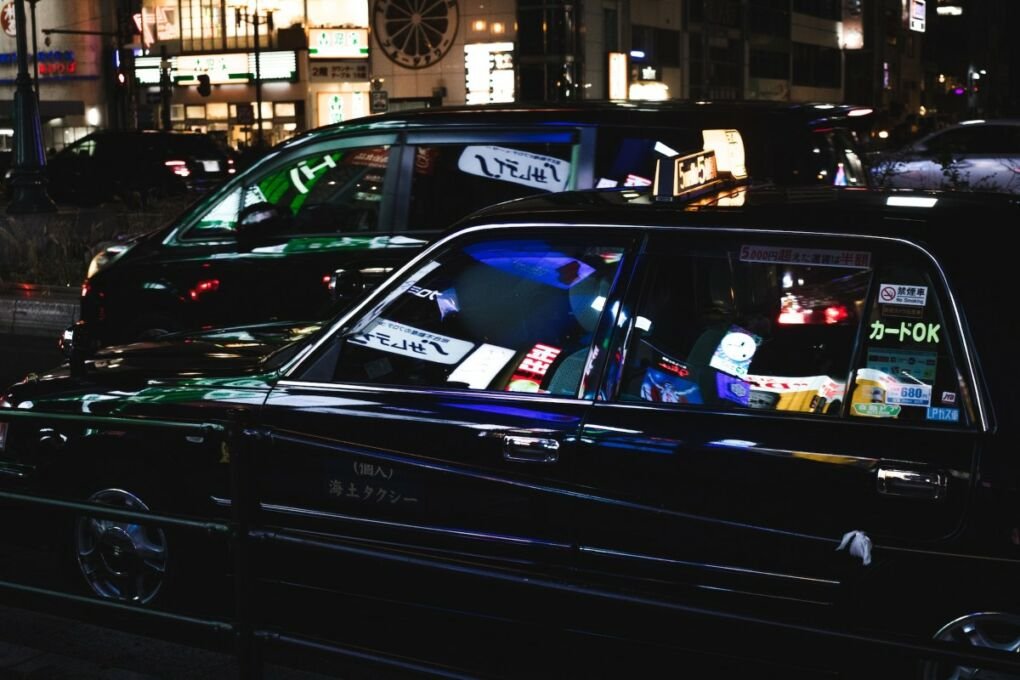
Kamagasaki, Osaka
This town is home to the largest homeless population in Japan. Many tourists flock to Kamagasaki due to the cheap accommodation, but locals avoid this area and consider it unsafe.
Kamagasaki is known for its organized crime and lack of policing. Minor crimes are regularly left behind, and people often get away with it. There have also been a lot of protests through the years, beginning in the 1960s all the way to 2008.

Is it Safe to Live in Japan?
Japan is a great place to live, and the best part, it’s quite safe. You’ll find friendly locals, clean streets and feel comfortable enough to walk alone at night. Japan has a low crime rate, and petty theft is rare.
The only threats you may encounter are miscommunications if you only speak English and natural disasters. Japan falls under the Ring of Fire, a region that sits where many volcanic eruptions and earthquakes occur. Luckily, Japan is quite prepared for these things and sends alerts to those in the affected areas. Most structures were built to withstand mother nature, so don’t let that put you off.
If you’re looking for the best places to live in Japan, read more to find out the pros and cons of each city.
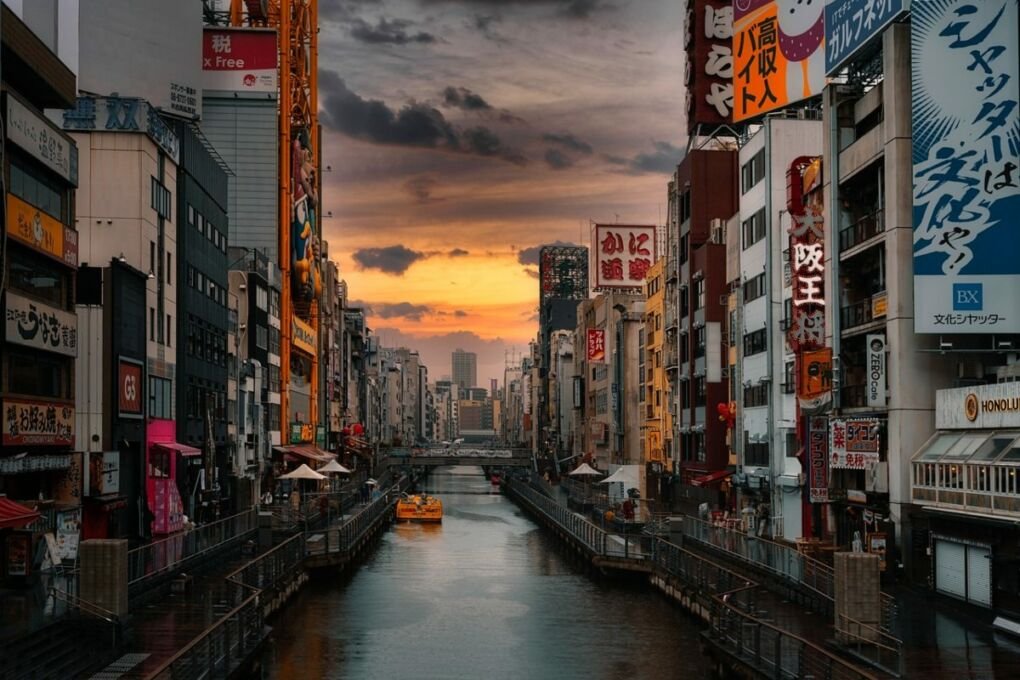
Safe Areas/Cities in Japan
Tokyo
Think of Japan, and Tokyo is usually the first city to pop into your mind. Home to over 14 million people, Tokyo is one of the safest cities in Japan. You’ll find diverse neighborhoods, a ton of things to see and do, and people from all around the world.
Tokyo is the most ‘English-friendly’ city in Japan, so it’s pretty popular for those looking to move from abroad. From shopping to culinary delights, Tokyo is a great place to live, the only con you’ll find in Tokyo is the high price tag on things.
Kyoto
Kyoto is a vibrant city in Japan, filled with beautiful buildings and rich history. You won’t find a shortage of shrines, temples and historic sites. Kyoto is the perfect city to live in if you’re looking to fully immerse yourself in Japanese culture.
Locals are very friendly, and Kyoto is a safe place to visit and live. Entertainment won’t be a problem as Kyoto is famous for its festivals, ceremonies, and arts. Since the city can be quite costly, we suggest moving away from the city center for more budget-friendly options.Kyoto has a great public transportation system, so it won’t take much effort to get back to the hustle and bustle of the city.
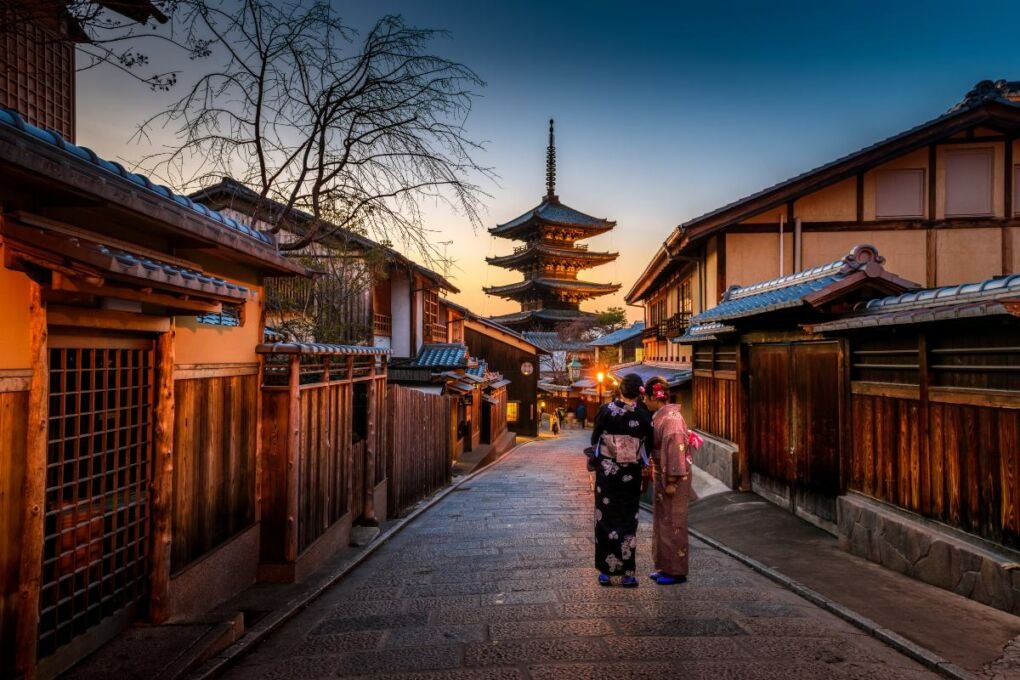
Osaka
Want to get a real taste of Japan? Osaka is where it’s at. This is a great city for foodies looking to try all sorts of tasty treats. Besides filling your belly, Osaka is known for its welcoming locals and affordability.
If you enjoy doing most things at night, Osaka is the city for you. Most restaurants, shops, bars, and entertainment are open late, making a great nightlife scene. You may need to learn a few common Japanese phrases, but Osaka is a great place to start since locals are very friendly.
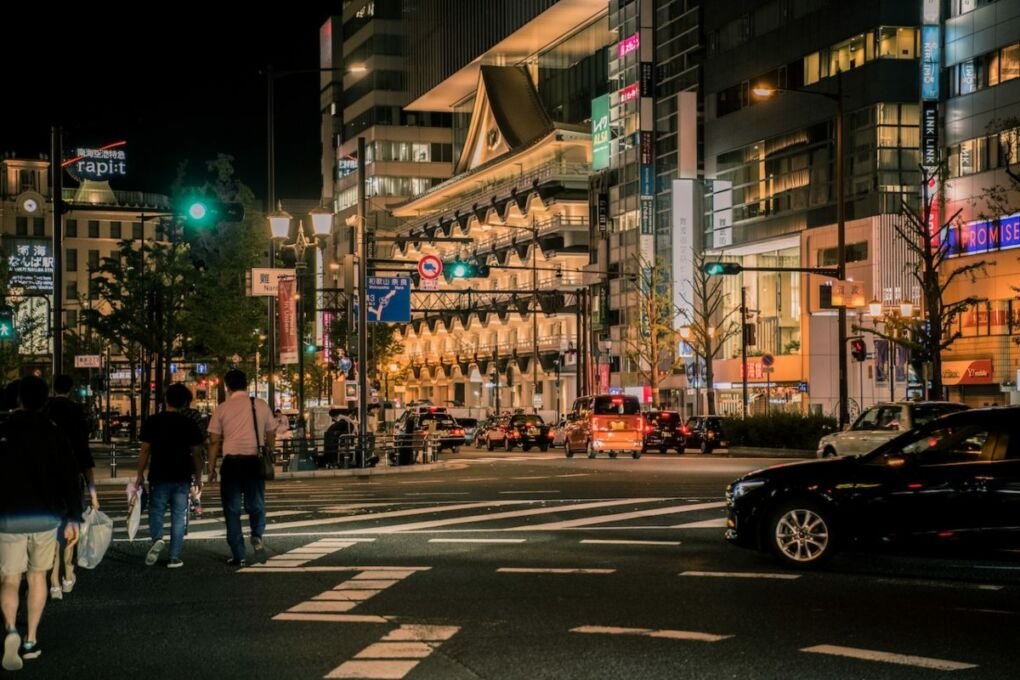
Warnings & Dangers in Japan
Japan is generally very safe and has very little crime. You can feel quite comfortable visiting or living in the country. That said, no country is entirely crime or danger-free, and Japan is no exception.
Though petty theft is rare, unfortunately, it does happen and usually in touristy areas. Women may experience some unwanted attention from men, and there have been incidents of harassment on trains. As mentioned, Japan falls under the Ring of Fire, so natural disasters are common, but alerts are always sent out, and preparations are in place.
Overall Travel Risk (3/10)
Overall, Japan is safe, but there are a few things to keep in mind and stay alert about. Japan is home to the largest red light district in the world (Kabukicho). While there’s a lot to do here, unfortunately, it does attract a lot of weirdos and gang-related activity.
Locals stay clear of Kamagasaki and feel it’s quite dangerous. The city is considered a slum, and you’ll find many homeless people wandering around. There is not a lot of policing that happens in this part of Japan.
Another thing to remember is to always pay attention to any alerts in your area for natural disasters. This is very important since anything can happen, and you’ll have to follow the precautions and steps.
Natural Disasters
Japan has experienced quite a few earthquakes and tsunamis. It’s good to familiarize yourself with earthquake protocol, like the dos and don’ts. Always be aware of your local shelter and emergency plans for your area. Officials will send alerts out, so pay attention to the news and make sure you always have reception to receive messages on your phone.
While certain natural disasters can’t be avoided, typhoons usually pop in around August to October, so you can plan your visit around that. Japan has a lot of things in place for the uncertainty of nature, such as shelters, infrastructure built to withstand impact, and sea walls in vulnerable areas.
Pickpocketing
This is rare, but it does happen from time to time, especially in tourist hot spots. It’s essential to keep your belongings close and leave important documents in a safe back at your hotel. There have also been incidents of bag snatching, so make sure your bags are secure and not loosely hanging around you.
Touts/Scalpers
Many club owners like to stand outside on busy streets and offer people flyers to their nightclubs or bars. Locals advise against going as they primarily target tourists into attending events and then overcharging them. There have also been incidents of credit card fraud and drink spiking. Ensure a fun night out by doing your research and not following people who say they “know a spot”.
Outsider Shaming
While not completely dangerous, it is something to be aware of. It’s been said that if you’re not Japanese, you’re always viewed as a foreigner and tend to stick out. People may call you “gaikokujin” or the more offensive term “gaijin”, which means outsider. This usually only happens in more rural areas, and the most dangerous outcome is inconvenience. It may be harder to get a car or apartment due to your non-local status.

Tips for Staying Safe in Japan
As you can tell, there aren’t many dangers to fear in Japan, and you’ll find that any of the listed issues may not even happen while you’re there. That said, it’s always better to be prepared and know what you may be walking into.
- Keep belongings close: Since pickpocketing and bag snatching can happen, it’s important to keep your things secure. Moon bags are a great way to store your items and always have them close to your body.
- Say no: If you are approached by a club promoter or someone asking if you want to go to a bar or club, just say no. It’s better to be safe as these are usually people wanting to scam tourists.
- Brush up on your Japanese: Depending on where you go, English can be fine, but it won’t hurt to know a few phrases in Japanese. This can really help if you’re traveling to other parts of the country and will also make locals feel like you’re making an effort.
- Stay alert: Due to natural disasters, Japanese officials send important alerts regarding upcoming disasters. Keep your eye on the news, and always make sure your phone is on with a signal.
- Check the weather: Research the forecast for when you plan to visit. Certain natural disasters (typhoons) usually hit during a specific period. Decide if you want to avoid it or not.
Is Japan Safe | Frequently Asked Questions
Is Japan Safe for Solo Women Travelers?
Yes, Japan is safe for women traveling alone. You can feel completely comfortable walking around and exploring by yourself. There have been incidents of unwanted groping and rubbing on crowded trains, but it’s not very common. You can make use of the women-only carriages if you’d like to feel safer.
Do Earthquakes Happen in Japan?
Yes, earthquakes do hit Japan due to its position on the Ring of Fire. Don’t let this scare you off, Japan is still perfectly safe to visit, and they can predict when something is about to hit. This means there’ll always be alerts, and you will be informed on what to do. A lot of Japan’s infrastructure is built to withstand any impact, so there’s usually not a lot of effect.
Is Japan Safe for LGBTQIA+ Travelers?
Japan is a conservative country, and people usually don’t display any sexuality or affection, whether in a same-sex or opposite-sex relationship. That said, Japan is the most progressive of all Asian countries, and same-sex sexual activity was legalized in the late 1800s. Transgender people are allowed to change their legal gender after reassignment surgery. There is a huge LQBTQIA+ community in Japan, especially in the bigger cities.
Is Public Transportation Safe?
Not only is public transportation safe in Japan, but it’s also very efficient. You’ll be able to hop on a bullet train and make your way around the country safely and at an affordable cost. Women need to be mindful of the (rare) unwanted groping that can happen, but overall it’s safe.
